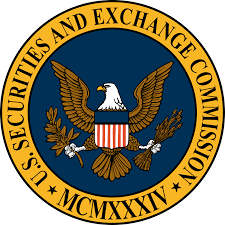Our senior writer attempts to suss out the SEC’s legal actions against the crypto exchanges and the reactions of Binance’s founder.
Crypto-currency is crapto-currency.

Changpeng Zhao
Naturally, the U.S. Securities & Exchange Commission wouldn’t put it that way. The commission is much too proper. But take it from FTF News, that’s the gist of the SEC’s recent complaint against Binance Holdings Ltd. and Changpeng Zhao, its founder.
It’s also the gist of a second legal complaint, alleging similar securities-laws violations, against Coinbase, “the only publicly listed exchange in the United States.” (See the FTF News story here about the Coinbase case: https://bit.ly/43RYwvW).
The regulatory criticism against both crypto providers will be familiar to dedicated FTF News readers.
According to a recent dispatch from Ephrat Livni, writing in The New York Times, the august Gray Lady of midtown Manhattan, two of the “biggest players” in cryptocurrency were “sued this week by the Securities and Exchange Commission: On Monday, the agency filed charges against Binance, the world’s biggest exchange, and the next day it accused Coinbase, the only publicly listed exchange in the United States, of violating securities laws.”
The SEC is taking on Binance via a set of 13 charges that include “operating unregistered exchanges, broker-dealers, and clearing agencies; misrepresenting trading controls and oversight on the Binance.US platform; and the unregistered offer and sale of securities,” according to the regulator’s announcement.
In addition, the SEC filed an emergency action application that sought a temporary restraining order “freezing assets, directing defendants to repatriate assets held for the benefit of customers of the Binance.US crypto trading platform.” The SEC also sought emergency relief against Binance Holdings Ltd., BAM Trading Services Inc., BAM Management US Holdings, Inc., and their founder.
The full list of the SEC’s charges can be found here: https://bit.ly/3PsfKfN
Binance’s founder responded to the charges with a lengthy statement defending Binance and the crypto industry in general.
“We are disappointed that the U.S. Securities and Exchange Commission chose to file a complaint today against Binance seeking, among other remedies, purported emergency relief,” Zhao says.
“From the start, we have actively cooperated with the SEC’s investigations and have worked hard to answer their questions and address their concerns. Most recently, we have engaged in extensive good-faith discussions to reach a negotiated settlement to resolve their investigations. But despite our efforts, with its complaint today the SEC abandoned that process and instead chose to act unilaterally and litigate. We are disheartened by that choice,” Zhao says.
 “While we take the SEC’s allegations seriously, they should not be the subject of an SEC enforcement action, let alone on an emergency basis. We intend to defend our platform vigorously. Unfortunately, the SEC’s refusal to productively engage with us is just another example of the Commission’s misguided and conscious refusal to provide much-needed clarity and guidance to the digital asset industry,” Zhao says.
“While we take the SEC’s allegations seriously, they should not be the subject of an SEC enforcement action, let alone on an emergency basis. We intend to defend our platform vigorously. Unfortunately, the SEC’s refusal to productively engage with us is just another example of the Commission’s misguided and conscious refusal to provide much-needed clarity and guidance to the digital asset industry,” Zhao says.
“Today’s action is another in a line of examples where, as with other crypto projects facing similar suits, the Commission has determined to regulate with the blunt weapons of enforcement and litigation rather than the thoughtful, nuanced approach demanded by this dynamic and complex technology. Unilaterally labeling certain tokens and services as securities – even ones over which other U.S. authorities have asserted jurisdiction – only compounds these problems,” Zhao says.
“Perhaps most surprising, the SEC’s actions undermine America’s role as a global hub for financial innovation and leadership. Digital asset laws remain largely undeveloped in much of the world, and regulation by enforcement is not the best path forward. An effective regulatory framework demands collaborative, transparent, and thoughtful policy engagement – a path the SEC has abandoned,” the Binance founder says.
“And, to be clear: any allegations that user assets on the Binance US platform have ever been at risk are simply wrong, and there is zero justification for the [SEC] staff’s action in light of the ample time the [SEC] staff has had to conduct their investigation. All user assets on Binance and Binance affiliate platforms, including Binance.US, are safe and secure, and we will vigorously defend against any allegations to the contrary,” Zhao says.
“Rather, the SEC’s actions here appear to be in service of an effort to rush to claim jurisdictional ground from other regulators — and investors do not appear to be the SEC’s priority. Because of our size and global name recognition, Binance is an easy target now caught in the middle of a U.S. regulatory tug-of-war,” Zhao says.
The SEC’s goal “was never to protect investors … The SEC’s real intent here, instead, appears to be to make headlines,” Zhao says.
 “We will continue to cooperate with regulators and policymakers in the U.S. and across the globe because that is the right thing to do. And Binance remains committed to productive engagement to ensure the next generation of cryptocurrency regulation fosters innovation while implementing and ensuring important consumer protections,” Zhao says. “Because Binance is not a U.S. exchange, the SEC’s actions are limited in reach. Still, we stand with digital asset market participants in the U.S. in opposition to the SEC’s latest overreach, and we are prepared to fight it to the full extent of the law.”
“We will continue to cooperate with regulators and policymakers in the U.S. and across the globe because that is the right thing to do. And Binance remains committed to productive engagement to ensure the next generation of cryptocurrency regulation fosters innovation while implementing and ensuring important consumer protections,” Zhao says. “Because Binance is not a U.S. exchange, the SEC’s actions are limited in reach. Still, we stand with digital asset market participants in the U.S. in opposition to the SEC’s latest overreach, and we are prepared to fight it to the full extent of the law.”
Zhao adds that he and his companies “will work alongside industry partners to defend this important technology from misguided lawsuits. And we will maintain our unceasing efforts to deliver a safe and trusted platform for our users that holds true to our core value of furthering the freedom of money.”
Neither Binance nor Coinbase replied to requests for further comment and questions from FTF News.
***
The day after filing the Binance charges, the SEC accused Coinbase. In response, Coinbase’s chief legal officer, Paul Grewal, testifying before a congressional committee, said, “The solution is legislation, not litigation.”
On its face, that Grewal’s call for legislation echoes the SEC.
Gary Gensler, chair of the commission, has repeatedly characterized crypto’s ubiquitous tokens as securities, subject to SEC regulation.
Among other benefits, regulation will protect crypto’s many unsophisticated investors, who have been the repeated victims of the smooth promises of con artists.
Savvy FTF News readers understand that ripping people off doesn’t necessarily mean that the law will step in and the good times will stop rolling.
Consider Three Arrows Capital. A headline in The New York Times chronicles the big fun the two founders of Three Arrows Capital, a crypto hedge fund, had after their fund’s collapse:
“They Lost Billions When Their Crypto Company Collapsed. They Went to Bali.
The implosion of Three Arrows Capital, a cryptocurrency hedge fund, devastated the industry. Its two founders spent the next year surfing and traveling.”
Cue the Beach Boys music.
Need a Reprint?